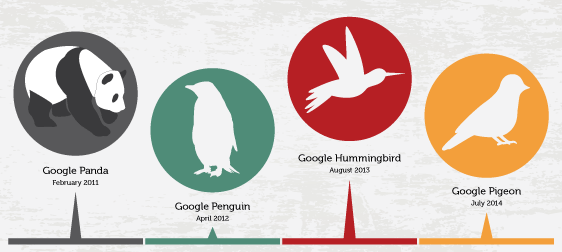Introduction
Keep in mind that these visitors often don’t know what book they’re looking for. They’ll just walk right up to you and ask something like, “What’s SEO?” Your job is to direct them to the best possible books in that forest of bookshelves.
And it’s not enough to identify just one book, either. You need to give them a list that ranks every single book in the library that could possibly have anything to do with what they’re looking for. And you need to do it all in about half a second.
Table of Contents
What Is Search Engine Optimization?
Knowing what these search algorithms look for and how to improve your page rankings in search engine results pages (SERPs) is called search engine optimization (SEO). And it’s just as tough as it sounds.
In November 2015, there were nearly 47 billion web pages indexed across all the major search engines and almost all of them were indexed on Google. This is an important distinction.
So if you want to improve your website’s SEO, you need to base your SEO strategy on Google Search and what this search engine giant deems important to its search algorithms.
Intimidated? Read on to learn SEO 101 and how to use it to improve your website’s ranking.
A Brief History of SEO

Google SEO is very refined and harder to “game” than ever before. But this was not always the case. In fact, back in the early 2000s, an SEO-savvy web developer could create a keyword-heavy microsite around a target keyword and make millions of dollars.
For example, let’s say that, back in 2005, you noticed there weren’t many online resources for young Millennials looking to navigate the new playing field of online dating. So after a bit of research you decided to create your own site that provides online dating advice. By cramming your cheap, spammy website full of keywords like “online dating,” “dating advice,” and “how to get a girlfriend,” you quickly ranked in the first page of search results for those keywords. By adding prominent call-to-actions to buy your new e-book on the subject (for only $8.99!), you quickly made millions.
These days, that type of SEO gaming is pretty much impossible. With the release of Google Panda back in 2011, spammy SEO keyword tactics were eliminated. Since then, Google has released a number of additional updates, like Hummingbird and Penguin, that have all made the search engines smarter at outsmarting marketers who are looking to exploit spammy SEO tactics.
In order to reward brands with great marketing campaigns and punish brands that rely on bad, spammy marketing tactics, Google considers a lot more than just keyword placement now. Everything from a site’s ease of use on desktop and mobile to how well the copy is written is put under the magnifying glass and factors into page ranking.
SEO for Startups and SMBs

For startups and small businesses that have lower marketing budgets and fewer web pages to monitor, basic SEO best practices are absolutely essential. A startup marketer’s job should be to learn as much as possible about SEO, and then use that knowledge to create a viable SEO strategy that effectively puts the brand in front of as many target buyers as possible.
This means understanding what matters to Google today. On a very basic level:
Words Matter
The keywords you choose, how well you use them, and even where you put them matter a great deal to Google’s algorithms. Quality writing and smart keyword usage will greatly increase your ranking in SERPs.
Titles Matter
Your page titles, headers, and subheaders must be effective and precise. These road signs help Google’s “spiders”—digital crawlers that index your website pages—determine what any given page is about. Your keywords should definitely show up where appropriate.
Links Matter
One way Google determines the reliability of a web page is by looking at its links. The more real inbound and outbound links, the more likely that the page has great information and will actually matter to readers. Be warned that Google is very good at spotting fake or paid links.
Reputation Matters
A site’s authority matters considerably now. Authority is an aggregate measure of hard-to-define metrics like trust, expertise, and popularity. Traffic is one way to measure authority, inbound and outbound links are another way, social media shares and comments are a third way, etc.
To learn more about what matters for startups, take a look at:
SEO for Enterprise Organizations

For large businesses and enterprise organizations with hundreds of offices and thousands of employees, SEO is a whole other ball game. It’s not enough to know SEO basics and implement them properly—what about the hundreds or thousands of pages that different marketing managers have to produce each year? T-Mobile, for instance, has more than 25,000 pages indexed in its phone and support section alone.
Because enterprise organizations have so much content on so many different pages, they can’t afford to do everything manually. Instead, they create page templates that are already optimized and can be easily customized for different marketers. They also focus more on small, lesser-known SEO improvements that could make a big difference across 25,000 pages.
For more information on what it takes to succeed at enterprise-level SEO, read:
To find out more about the 200 ranking factors that Google’s algorithms measure to accurately determine page ranking, take a look at this great infographic:






